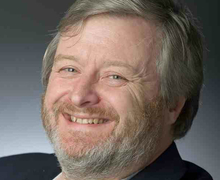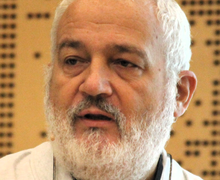Interview with Simon Phipps and Italo Vignoli
Consensus as a Service. Twenty Years of OSI Stewardship


Simon Phipps and Italo Vignoli will give a talk about Consensus as a Service. Twenty Years of OSI Stewardship at FOSDEM 2018.
Q: Could you briefly introduce yourself?
Simon Phipps is the Open Source Initiative (OSI) Chairman, and has been involved in FLOSS since forever.
Italo Vignoli is a Director at OSI, and has been involved in FLOSS for the last 15 years.
Q: What will your talk be about, exactly? Why this topic?
The “open source” label was created at a strategy session held on February 3rd, 1998 in Mountain View, California. That same month, now almost twenty years ago, the OSI was founded as a general educational and advocacy organization to raise awareness and adoption for the superiority of an open development process.
As the Open Source Definition’s author Bruce Perens says: “Open Source” is the proper name of a campaign to promote the pre-existing concept of Free Software to business, and to certify licenses to a rule set. We will look back at the past two decades of open source history - the first decade was one of advocacy and controversy, while the second was marked by adoption and adaptation - and look forward at the third starting at FOSDEM 2018.
Q: What do you hope to accomplish by giving this talk? What do you expect?
To celebrate the importance of open source 20th anniversary in our shared history, the remarkable success of the open source software movement, and the inspiring fellowship of developers, maintainers, businesses and communities engaged in collaborative efforts across so many technology sectors supporting just about every company and community, the OSI - in partnership with its affiliate members and sponsors - is organizing a global celebration to take place at a variety of open source venues worldwide throughout 2018.
FOSDEM 2018, whose opening session is scheduled just by coincidence on the very day of the 20th anniversary, is going to be the ideal starting point for a series of open source events in five continents which are celebrating the leading role of open source software for true innovation.
Q: What are some milestones in the history of the Open Source Initiative? How did the organization and its goals evolve? Is is still the same organization as 20 years ago?
OSI has obviously changed in a significant way over 20 years. A summary of the history is on the OSI website. For the 20th anniversary we have also created a timeline, which can be accessed at opensource.net as a PDF poster. We will show a copy of the poster during the FOSDEM talk, and comment some of the milestones: the birth of the Open Source Definition and the first list of OSI approved licenses, the launch of the affiliate program and of the individual membership program, and the election of directors by them.
Q: Today open source software is literally everywhere. Google and Facebook wouldn’t exist without open source software, many governments are investing in open source software, and even Microsoft has changed its stance from “Linux is a cancer” to “Microsoft loves Linux”. Where do you see this going? And do all those organizations believe in the four essential freedoms of open source software?
Open source has evolved over the last 20 years in terms of global awareness, but we must still invest time and efforts to make everyone aware of the four essential freedoms. At the moment, the growing adoption rate is driven by the superior characteristics of the open source software, which are easy to realize for any user. So, while it is difficult to say if all organizations deploying open source software do believe in the four essential freedoms as much as we do, it is indeed positive that they are using it over proprietary solutions.
Q: Have you enjoyed previous FOSDEM editions?
We have been attending FOSDEM for over a decade, and we have always considered the event a “must” for every open source advocate.

Creative Commons License
This interview is licensed under a Creative Commons Attribution 2.0 Belgium License.